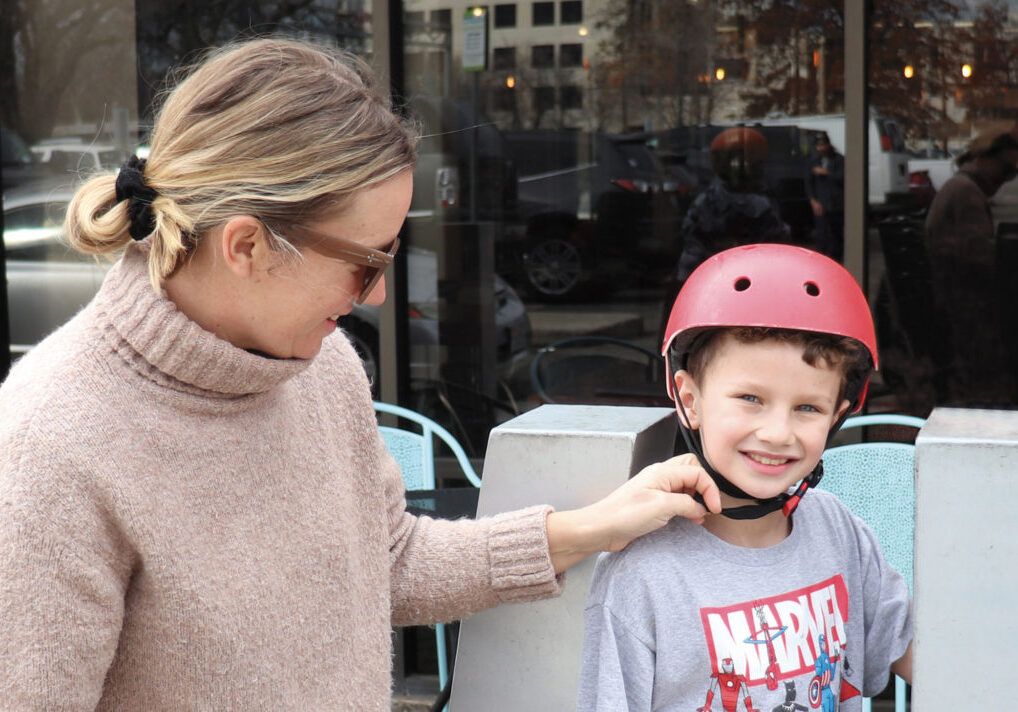Here in the North State, approximately 1,350 children are not able to remain in their own homes. The Department of Social Services matches these children with a resource family where they can live in a warm, loving, secure home while recovering from trauma and while their parents receive the help they need. The goal is to provide education to the birth parents, and then to reunite child and parents. Opening your home and heart to a child in need can provide nurturing support to that child and help mend families.
Foster families are now called resource families
Terminology and processes have changed over recent years. Foster families are now called resource families—and resource families now include both relatives and non-relatives of the child. Resource families receive extensive training to prepare them to care for children in need of a supportive, loving home.
Resource Family Approval (RFA) is the process that volunteers go through to be ready to host a child in their homes. The training includes topics such as how the court system works, how to handle medical needs of a child and learning about the effects of trauma on the brain. After a 3-hour orientation, there’s a minimum of 12 hours of classes. Some counties require further training. Adults in the home undergo a criminal background check, and the home is inspected for safety. Applicants also fill out a questionnaire that will let the county social workers get to know them.
The whole process of RFA does take time. So, right from the start resource families exhibit dedication. Resource parents are highly motivated to do what they can to help improve the lives of children in need! Could this be you?
Empathy leads to compassion
I recently sat down at From the Hearth in Red Bluff with a beautiful couple, Jeff and Judy Mandolfo, to talk about their years of experience with fostering. Judy serves as an advocate for resource families and helps provide some of the training they need. Jeff and Judy have volunteered to house many children over the years. They found their niche in opening their arms to medically fragile babies.
Judy knows firsthand what it’s like to be a child in the foster care system. Her own childhood trauma has given her a knowing concern and abiding commitment to help other children in need. Judy and Jeff’s message is clear: Don’t discount the help you can be if you yourself have had a rough childhood. Empathy can lead to special compassion.

Resource parents open their home and hearts to a children in need.
Protection for the defenseless
Child neglect, Judy says, is the number one reason that families are disrupted. Neglect, the most common form of child maltreatment, is an ugly outgrowth of parents who are distracted by mental illness or addiction. These issues may also lead to domestic violence. Neglect can mean that a child is not given adequate food, clothing, shelter, supervision and/or medical care. Jeff says resource families are there to “provide protection for the defenseless.”
Judy told me that the greatest need is for resource families who are willing to serve foster teens. Teens need to feel seen and heard. Resource families can be of significant help to hurting teens by being there, by listening and by helping them to learn resilience.
One caring adult can make a difference
Reflecting on her years volunteering with children, Judy defines success as sustained motivation. The resource parent who has a heightened need for children to express their appreciation for the sacrifices being made on their behalf will soon give up. Long-term commitment and farsightedness are needed. Resource families understand that one caring adult in a child’s life can make a positive difference in a child’s future. Often, resource parents are also able to educate birth parents, helping them along in the process toward reunification with their children.
The satisfied resource parent has hope that, by showing a child how a family can function in a loving and positive way, the child will decide to break from a negative pattern when setting out on his own adult life.
Judy and Jeff have had the satisfaction of seeing this process bear fruit. It’s always a rewarding day when former foster children, who are now adults, return to visit with them. They hear, then, those words of appreciation and thanks. They are told of the difference that they have made in these lives.
If you would like to start your journey as a resource parent to help children in your community, contact your county’s Department of Social Services Resource Family Approval office.
- Butte County: (800)400-0902 buttecounty.net/451/Resource-Family-Approval-Formerly-Foster
- Glenn County: (530)934-1445 countyofglenn.net/
dept/health-human-services/social-services/
resource-family-approval/welcome - Shasta County: (530)225-5791 shastacountycaresforkids.com/foster/
- Siskiyou County: (530)841-4200 co.siskiyou.ca.us/acs
- Tehama County: (530)527-1911 tcdss.org/index.php/how-do-i/become-a-resource-family-formerly-known-as-foster-family
Posted in: Family Life & Support, Youth & Teen
Comment Policy: All viewpoints are welcome, but comments should remain relevant. Personal attacks, profanity, and aggressive behavior are not allowed. No spam, advertising, or promoting of products/services. Please, only use your real name and limit the amount of links submitted in your comment.
You Might Also Like...

Boy Scouts of America — Teaching Leadership And Giving Back To The Community Since 1910
Early Saturday morning, just as the sun rises, a small group of 10-17-year-old Boy Scouts meet in a school parking lot, dressed in their uniforms, packed, and ready to set […]

Wear a Bicycle Helmet – Six Tips For Safety
Not only is riding a bike a rite of passage, representing fun, freedom and fresh air, it’s a healthy pastime that kids and families can enjoy together. Every month, hundreds […]

Shasta College Celebrates 75 Years of Excellence and a Legacy of Community Service
For 75 years, Shasta College has been honored to serve our North State communities by providing affordable access to higher education. It’s a little dizzying to consider how far we’ve […]

Payday & Tax Expectations For Teens
An excellent time to discuss taxes and withholdings with your teen is at the start of his or her employment when he is filling out a W-4 tax form. Instruct […]



